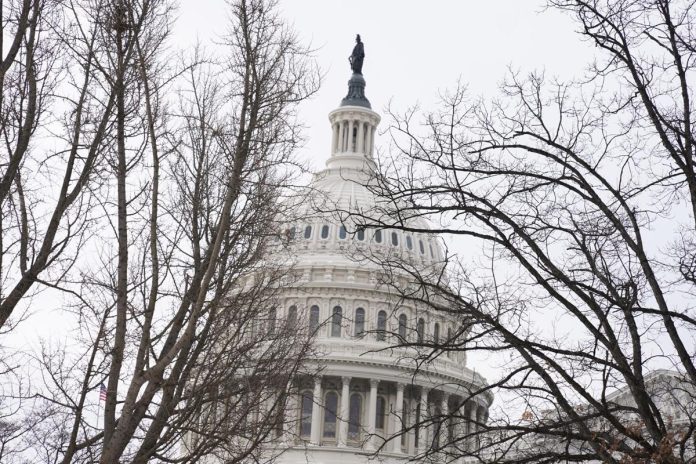The Senate passed a $1.2 trillion package of funding bills early Saturday morning, which in turn will push back the threat of a government shutdown into the autumn. Joe Biden is expected to sign it soon – AP News reported.
”Because obligations of federal funds are incurred and tracked on a daily basis, agencies will not shut down and may continue their normal operations,” the White House statement said.
With agency funding complete, the White House sent out a notice that the Office of Management and Budget had halted preparations for a shutdown because there was high confidence that Congress would pass the legislation and the president would sign it on Saturday.
The chances of a government shutdown especially increased Friday night as Democrats and Republicans clashed over proposed amendments to the bill. Any successful amendments to the bill would send it back to the House, which has already gone on a two-week recess.
Despite, the House passed the bill Friday morning by a score of 286-134, narrowly missing the two-thirds majority needed for approval. The vote resulted in 101 Republicans voting in favour of the bill and 112 voting against it. Meanwhile, 185 Democrats voted in favour of the bill and 22 voted against it. More than 70% of the money is to go to the defence industry.
”It’s been a very long and difficult day, but we have just reached an agreement to complete the job of funding the government,” Chuck Schumer stressed. ”It is good for the country that we have reached this bipartisan deal. It wasn’t easy, but tonight our persistence has been worth it.”
The House vote reflects Republican anger over the content of the package and the speed with which it was brought to a vote. For istance, House Speaker Mike Johnson brought the bill to the floor even though most Republicans ultimately voted against it. He said afterwards that the bill ”represents the best achievable outcome in a divided government.”
Johnson split the spending bills for this fiscal year into two parts as House Republicans rebelled against what has become an annual practice of being asked to vote for one massive and complex bill called an omnibus without allowing time for consideration or else face a shutdown. More over, Johnson viewed that as a breakthrough, saying the two-part process was ”an important step in breaking the omnibus muscle memory.”
Either way, the latest package was clearly unpopular with most Republicans, who felt it contained too few of their policy priorities and too much spending.
Johnson, in an effort to drum up support from Republicans, revealed that some of the spending increases provided about 8,000 additional beds to hold migrants awaiting their immigration cases or removal from the country. That’s about a 24% increase over current levels, and GOP leadership noted the increased cost of hiring about 2,000 Border Patrol agents.
It took lawmakers six months of the current fiscal year to get close to the finish line on funding the government. The process has been slowed mostly by conservatives who have pushed for more policy mandates and tougher spending cuts.
The impasse has resulted in several short-term temporary spending bills having to be passed to keep agencies funded.
The first package of full-year spending bills, funding the Departments of Veterans Affairs, Agriculture and Interior, among others, was passed by Congress a fortnight ago with only hours to go before funding for those agencies expired. If the two packages are combined, discretionary spending for the fiscal year would total about $1.66 trillion. That amount does not include programmes such as Social Security and Medicare, nor does it include funding for the nation’s growing debt.
Sen. Susan Collins, the top Republican on that committee, appealed to her GOP colleagues by stating that the bill’s spending on non-defense programs actually decreases even before accounting for inflation: ”These bills are not big spending bills that are wildly out of scope.”
Meanwhile, Democrats highlighted a $1 billion increase for Head Start programs and new child care centres for military families. They also touted a $120 million increase in funding for cancer research and $100 million for Alzheimer’s disease research.
”Make no mistake, we had to work under very difficult top-line numbers and fight off literally hundreds of extreme Republican poison pills from the House, not to mention some unthinkable cuts,” said Sen. Patty Murray, the Democratic chair of the Senate Appropriations Committee.
The spending package is largely consistent with an agreement then-Speaker McCarthy made with the White House in May 2023. It capped spending for two years and suspended the debt ceiling until January 2025 so the federal government could continue to pay its bills.
